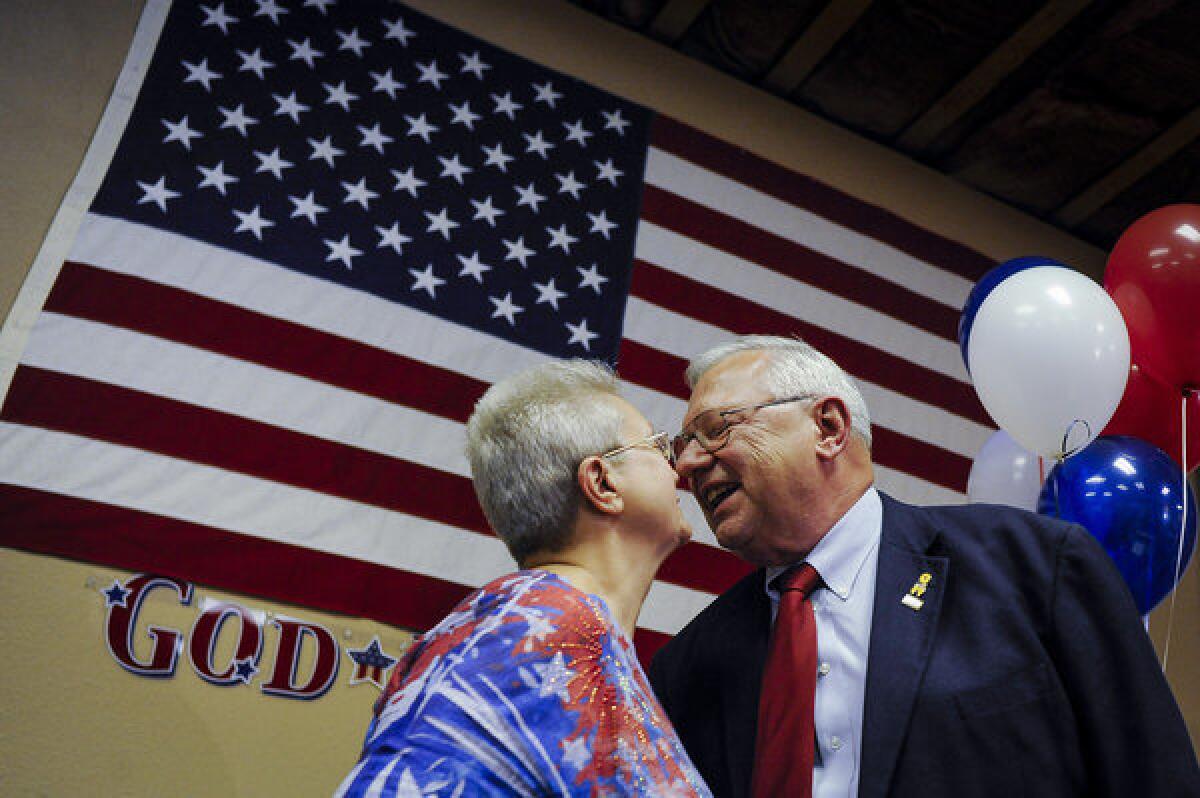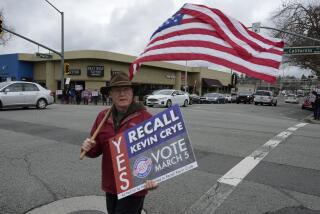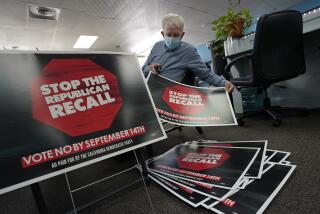Related story: In Colorado, gun control advocates cite caveats amid NRA win

COLORADO SPRINGS, Colo. -- There is a danger in drawing overly broad conclusions from any one election, especially an off-year election. That would apply even more to an election as singular as Colorado’s unprecedented recall vote.
Exercising a 100-year-old franchise for the first time, voters in Colorado Springs and Pueblo tossed out a pair of lawmakers -- one the president of the Colorado Senate--after they helped enact tougher gun controls in response to the mass shootings in Newtown, Conn., and Aurora, Colo., a Denver suburb.
It was a narrow defeat for Democratic Senate President John Morse, who went down 51% to 49% in a Colorado Springs district roughly evenly split among Democrats, Republicans and independents. More surprising was the blowout that sent Sen. Angela Giron into early retirement, a 56% to 44% trouncing in a Pueblo district that is heavily Democratic.
There are plenty of caveats, which recall opponents seized upon in the immediate aftermath of Tuesday’s election.
PHOTOS: 2013’s memorable political moments
“The Washington gun lobby cherry-picked only four vulnerable senators -- and after failing to gain public support in their bid to oust two of them, they funded a major campaign in a low-turnout, off-year election to defeat the other two,” the group Mayors Against Illegal Guns said in a written statement. “This election does not reflect the will of Coloradans.... It was a reflection of a very small, carefully selected population.”
The organization, co-chaired by New York City Mayor Michael Bloomberg, spent hundreds of thousands of dollars trying to save Morse and Giron.
Recall opponents also point to the way the election was conducted. There was no voting by mail, the way the vast majority of Coloradans are accustomed to casting their ballots. That required people to show up and vote in person -- the old-fashioned way! -- and that gave an advantage to the much more fired-up pro-recall forces.
But all of that is fine print beneath a bold heading: Two state lawmakers -- one of them just months away from retirement -- are now out of work because they supported gun control. That can only enhance the fearsome reputation of the National Rifle Assn. and its allies in the gun rights movement, who chipped in hundreds of thousands of dollars of their own to send Morse and Giron packing.
Robert J. Spitzer, a professor at the State University of New York in Cortland and the author of several books on the politics of gun control, said Tuesday’s election was the equivalent of a 5.0 earthquake on the political Richter scale.
“There was a tremor, but it didn’t rearrange the furniture and didn’t crack the building,” he said.
Even so, as Spitzer noted, “symbolism matters a lot in politics” and the NRA and its forces can claim an important victory -- one that has drawn wide notice well beyond the Rocky Mountain state. That means, for at least the short term, a lot of politicians weighing action on gun controls may be a tad jumpier than usual, thinking of aftershocks.
Follow Politics Now on Twitter and Facebook
Twitter: @markzbarabak
More to Read
Start your day right
Sign up for Essential California for news, features and recommendations from the L.A. Times and beyond in your inbox six days a week.
You may occasionally receive promotional content from the Los Angeles Times.







